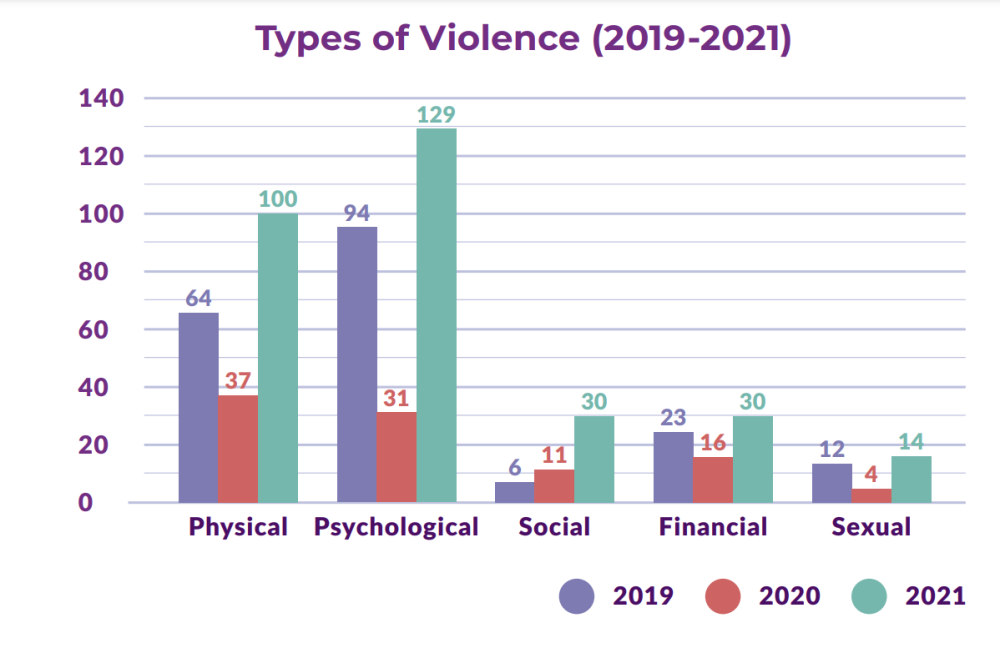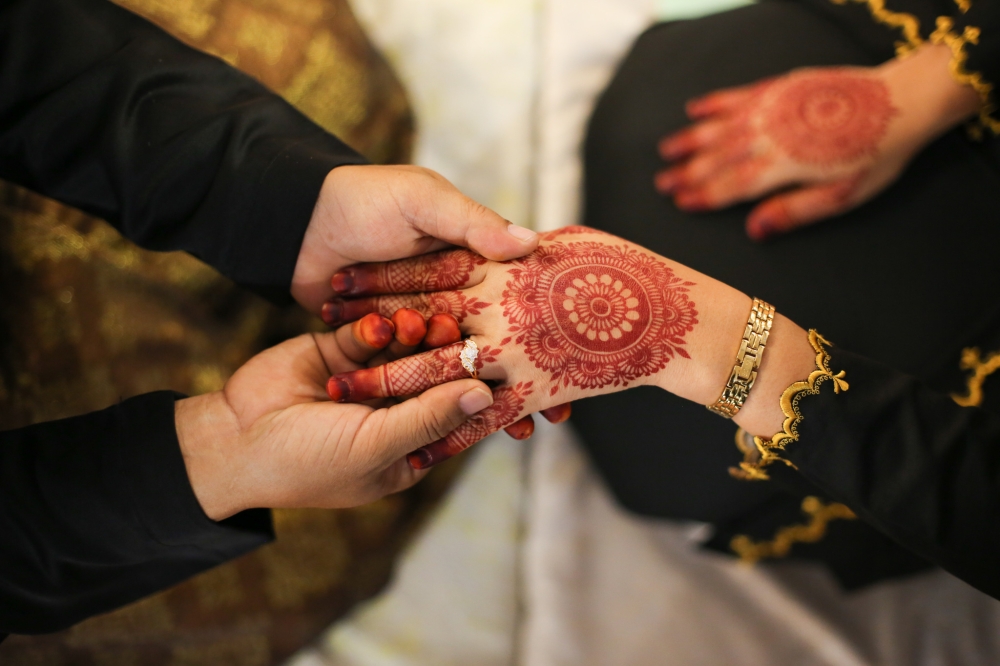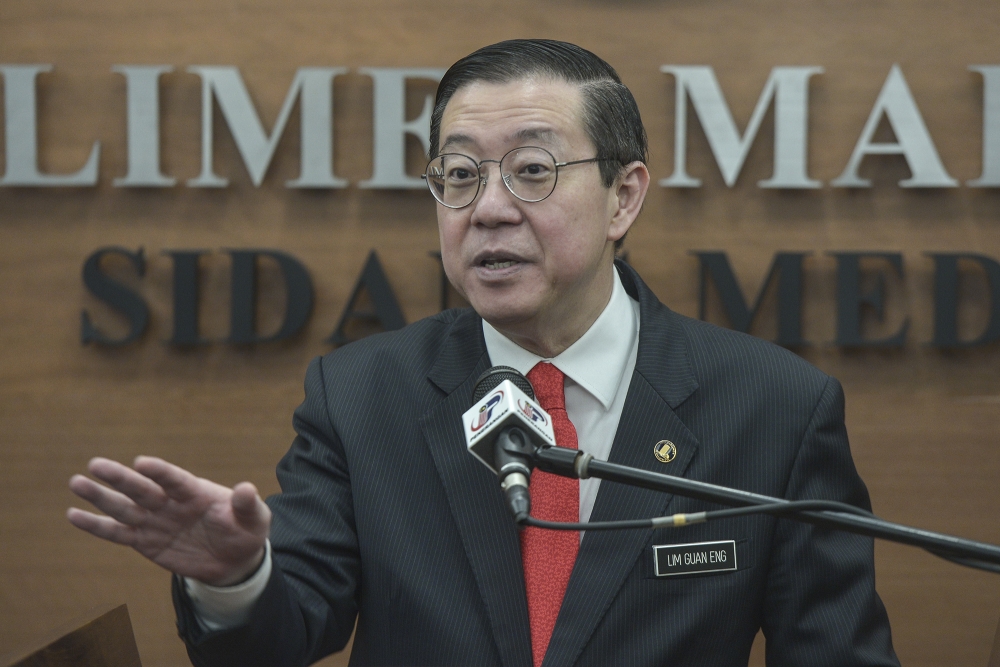KUALA LUMPUR, July 23 — Husbands and wives who do not talk to each other — or in other words, communication breakdown — is the number one reason why Muslims in Malaysia divorce, Sisters in Islam’s (SIS) findings for the year 2022 show.
In its latest report, SIS recorded the top four reasons cited by Muslims who used its free legal aid service Telenisa in 2022 on why they divorce, with communication breakdown being the most common reason at 31 per cent.
“This may happen due to spouse’s selfishness, lack of tolerance or lack of engagement that diminishes further the love and unity they once had,” SIS said in its Telenisa Statistics and Findings 2022 report released yesterday.
At 31 per cent, this is the highest-ever percentage for communication breakdown as a reason for divorce in the last seven years, or since SIS started releasing its Telenisa reports annually.
Syafiqah Fikri Abazah, a legal officer of Sisters in Islam (SIS), told the crowd at the 2022 findings’ launch yesterday that the organisation had observed three kinds of scenarios which contribute to communication breakdown among couples.
“One of the three things is the refusal of one of the partners to speak on a daily basis. When asked questions or for opinions, the husband or wife will just keep quiet only.
“Secondly, most of our clients, when a bit of quarrel happens, the situation tends to get accelerated very easily, so both of them are having trouble communicating with one another. Because I think it has already been very long that one side is always silent and the other one is always communicating, so the frustration is imploding,” she said when asked to explain what causes married couples to have communication breakdowns.
Syafiqah also gave the example of couples who are living far away from each other, and the wife wants to know how the husband is doing, but the husband does not pick up phone calls and does not reply to WhatsApp messages.
Based on past annual reports of Telenisa’s findings, SIS had in its 2018 edition explained the factor of communication problems as including lack of communication or inability to communicate, with married couples failing to come to a consensus on matters ranging from serious issues such as their children to inconsequential matters like decisions on interior decorations.
In its 2020 edition of the Telenisa report, SIS observed that couples who have a hard time discussing important matters or with unhealthy disagreements or misunderstandings would lead to a lack of emotional intimacy between them.
Looking at just 2022 alone, both domestic violence and husband not providing maintenance (financial support) shared the same spot as the second-most common reason for divorces at 15 per cent each, followed by infidelity at 13 per cent.
Throughout all seven years from 2016 to 2022, the top four reasons for Muslims’ divorcing were the same: communication problems, domestic violence, husband not providing maintenance and infidelity or affair.
This is except for the year 2020, when communication breakdown was not a top four reason, and it was replaced by the joint category of financial problems and polygamy.
In 2020, which was when Malaysia underwent months of the strictest Covid-19 lockdown measures including movement restrictions where many had to stay home except for essential reasons, SIS in its 2020 report said many households were affected economically in that year, with some having fallouts due to their inability to adapt and survive the economic strain then.
As for why polygamy became a key reason for divorce in 2020, SIS had previously said this was due to wives discovering that they had been in a polygamous marriage for years without their knowledge and consent, with the wives only finding out through messages from the other party or from seeing the husband’s belongings or documents that hinted on the polygamy.
Looking back at previous years of 2016 to 2019 when all factors cited by Telenisa clients for divorces were made available, financial factors ranged between 2.2 to eight per cent, while polygamy as a factor ranged between 5 to 11 per cent.
Throughout the seven years from 2016 to 2022, domestic violence was often the number one or number two reason for divorces, based on Telenisa’s findings.
While it had placed sexual violence as a separate category in earlier Telenisa reports, SIS had in subsequent years grouped them all under domestic violence.
In its 2021 report, Telenisa showed that it had recorded 199 domestic violence cases in 2019, followed by 99 such cases in 2020, and 303 cases in 2021.
The domestic violence cases were further broken down into five different types of abuses: physical, psychological, social, financial and sexual abuse, and with Telenisa saying that many clients had went through psychological abuse for several years before seeking for help.

On June 16, the Department of Shariah Judiciary Malaysia (JKSM) said a total of 306,454 cases or 73 per cent of cases in Shariah courts throughout Malaysia from 2015 to 2019 were for the dissolution of marriages, with 90 per cent of such cases filed by the wife as the plaintiff.
In that same June 16 article, JKSM's corporate communications chief Roziana Mat Amin had also analysed 669 marriage dissolution case files in Selangor before listing out the top 10 factors for divorces among these Muslim families, namely financial reasons (such as not providing maintenance); abandoned by the other spouse; interpersonal skills or character (such as lack of communication or ineffective communication); abuse, sexual reasons, external reasons (which includes infidelity or affair); polygamy; religious factors; health (such as illness or disability); and underage marriage.
Since 2003, SIS has been providing free legal advice through Telenisa to Muslim women and men on their legal rights under Islamic family law and laws on Shariah offences. Such Islamic family law matters include divorce, polygamy, maintenance of wife and children, matrimonial property, and child custody.
At the 20th year anniversary celebration for Telenisa yesterday, SIS executive director Rozana Isa said the service has helped 15,000 individuals, aided by the Selangor and Kuala Lumpur Legal Aid Centres via internship programmes for chambering students.
Telenisa operations cost more than RM1.5 million to run over 20 years, with financial funding and donations received over the years from partners such as Yayasan Sime Darby, Friedrich Naumann Foundation, Lee Foundation, Sigrid Rausing Trust, Canada Fund for Local Initiatives, and the Australia High Commission.
Telenisa can be reached at 012-812 3424 from Monday to Friday from 10am to 5pm via phone calls, video calls and WhatsApp, with face-to-face consultations available by making appointments.




















